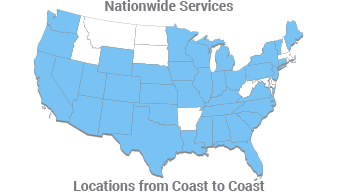- Home
- Services/IndustriesServicesindustries
- About Us
- LocationsStatesAccordion ContentAccordion ContentAccordion ContentAccordion Content
- Job Openings
- Quick Links
- ATS Family
Pyrolysis Gas Chromatography Mass Spectrometry
The chemical analysis experts at Applied Technical Services conduct pyrolysis gas chromatography mass spectrometry to break down complex materials for identification and analysis.
GC/MS
Pyrolysis gas chromatography mass spectrometry is an advanced chemistry technique used to break down complex materials into smaller, more manageable components for identification and analysis. Pyrolysis GC/MS is especially valuable for studying polymers, plastics, paints, and other substances that are difficult to analyze directly because of their large molecular structures. Pyrolysis involves heating a sample to very high temperatures in an oxygen-free environment, causing it to decompose into smaller molecules, or pyrolysates. Pyrolysates is a term used for products of pyrolysis. These pyrolysates are then carried by an inert gas through a gas chromatograph, where they are separated based on their chemical properties. The separated molecules are then introduced into a mass spectrometer for identification based on their mass-to-charge ratio. This process provides a detailed chemical fingerprint of the material, making pyrolysis gas chromatography mass spectrometry a powerful tool for both qualitative and quantitative analysis and highly effective for studying synthetic polymers, additives, contaminants, and degradation products, among other compounds.
Pyrolysis GC/MS at Applied Technical Services
Our expert chemists begin the process with the pyrolysis of the sample, which is typically conducted at temperatures ranging from 500°C to 1000°C. At these elevated temperatures, chemical bonds in the sample break apart, resulting in the formation of smaller molecules that are volatile enough to be transported by the carrier gas into the gas chromatograph, which separates these molecules. This separation produces a series of peaks on a chromatogram, with each peak representing a different chemical compound. Once the components have been separated and enter the mass spectrometer, the molecules are ionized and broken into charged fragments. These fragments are sorted and detected, generating a mass spectrum for each compound. Our chemists then compare these results to known reference libraries to identify the chemical composition of the sample. Pyrolysis GC/MS has applications in materials science, forensics, environmental analysis, manufacturing, biology, polymers, and several other fields and disciplines.
The Mass Spectrometry Experts at ATS
The expert chemists at the Applied Technical Services Family of Companies perform an impressive range of chemical analysis services for clients operating in the medical, petrochemical, pharmaceutical, aerospace, life sciences, manufacturing, building and construction, oil and gas, nuclear, renewable energy, and consumer product industries. With over 55 years of business experience serving as one of the nation’s leading chemical analysis providers, we have the expertise to help your business thrive. Get in touch with us today by submitting a request for on this page, or call us at 1 (888) 287-5227 for additional information or a free quote on our pyrolysis gas chromatography mass spectrometry services.

Request Form
"*" indicates required fields
Chemical Analysis
- Ash Testing
- Azo Dyes
- Azo Dye Testing
- Benzene Analysis
- Biocompatibility Testing for Medical Devices ISO 10993
- Chemical Composition Testing Lab
- Cleanliness Testing Lab
- Contamination Test
- Combustion Analysis
- CPSIA Testing Lab
- DSC Analysis
- DSC Analysis of Polymers
- DSC Polymer Characterization Analysis
- DSC Testing
- Ethylene Oxide GC MS Analysis
- EPA Method 24 Testing
- Extractables Leachables Testing
- Extractables Testing
- Flame Retardant Chemicals
- Formaldehyde Testing
- FTIR Analysis
- FTIR Chemical Analysis
- FT-IR Material Analysis
- FTIR Surface Analysis
- FTIR Testing
- Gas Chromatography Mass Spectrometer Analysis
- GCMS Analysis and Testing
- GCMS Oil Analysis
- Halide Anion Testing
- HPLC Analysis Services
- ICP-AES Analysis
- ICP-OES Testing
- ION Chromatography Testing
- ISO 10993 Testing
- ISO 10993 Testing Lab
- Karl Fischer Testing
- Leachable Testing
- LECO Testing
- Melting Point Analysis
- Methane Analysis Gas Chromatography
- Methanol Contamination Testing
- OES Materials Testing
- Optical Emission Spectroscopy
- PAH Testing
- Particle Size Distribution Analysis
- Particle Size Distribution Analysis Laboratory
- Particle Size Distribution Testing
- PFOA Testing
- PFOS/PFOA Testing
- Plastic Impact Testing
- Plastic Pipe Testing
- Polymer Characterization Lab
- Polymer Material Testing
- Polymer Testing and Analysis
- Powder Characterization
- Product Formulation
- Pyrolysis Gas Chromatography Mass Spectrometry
- Solvent Testing Lab
- TGA Analysis
- TGA DSC Analysis Lab
- TGA Moisture Analysis
- TGA Polymer Testing
- Thermal Analysis Services
- UV VIS Testing
- VDA 19.1 Cleanliness Testing Lab
- Ventilator Component Cleanliness Testing
